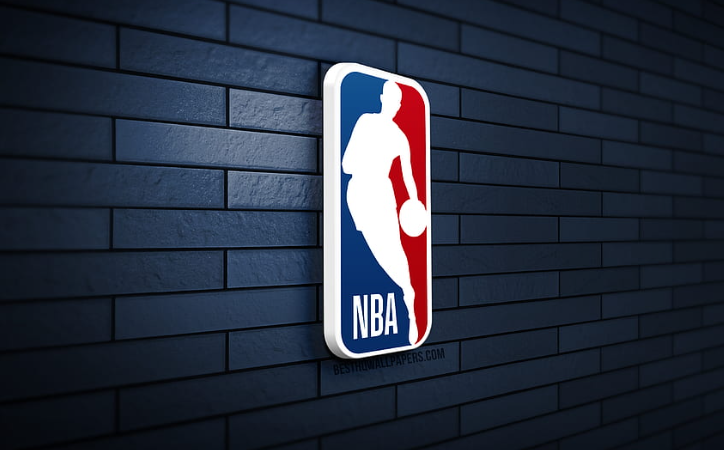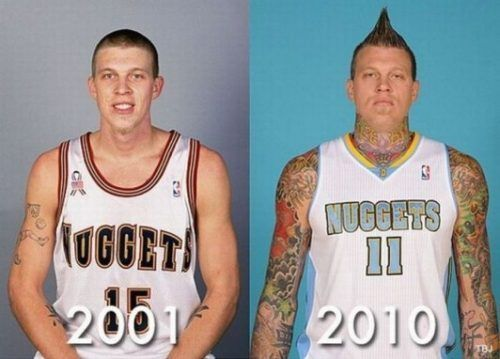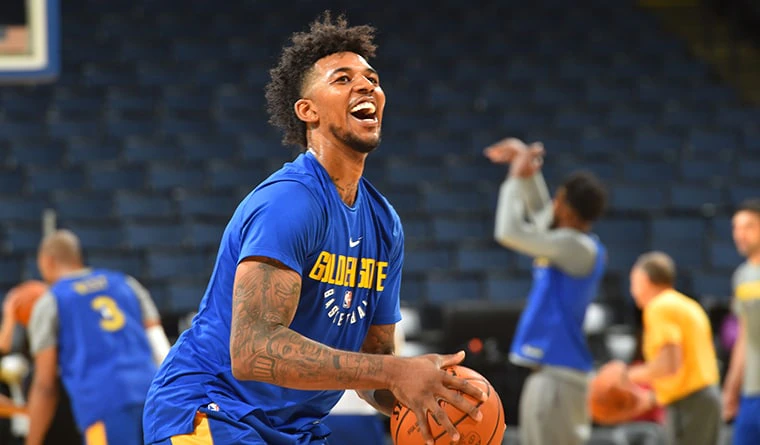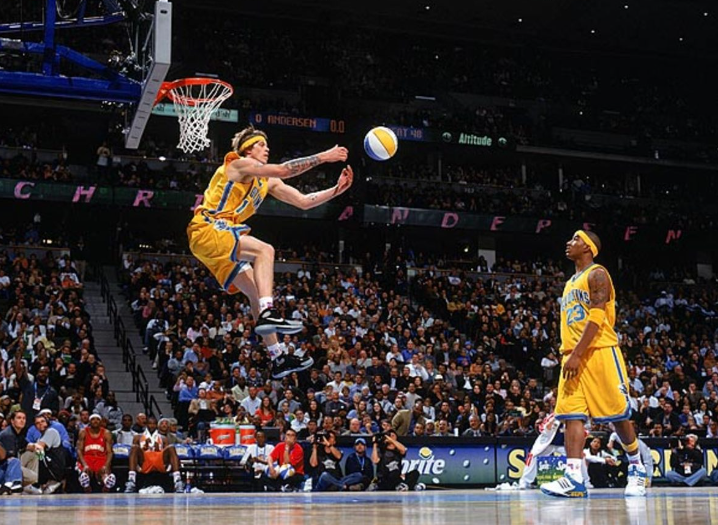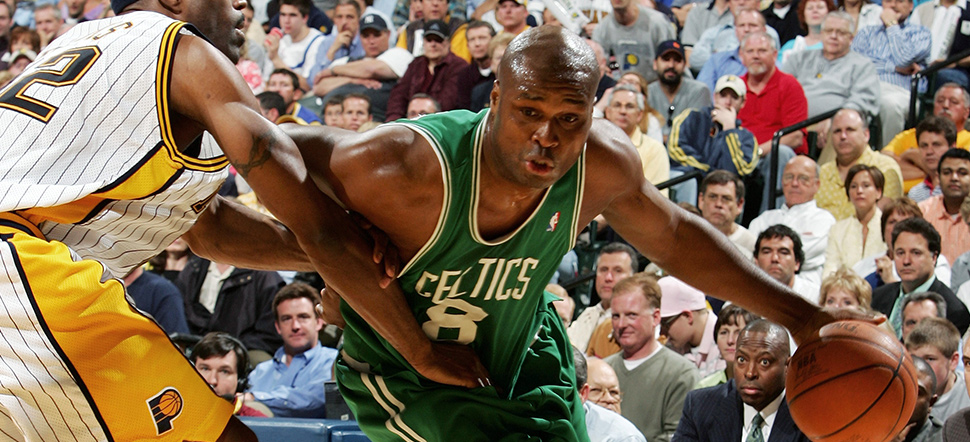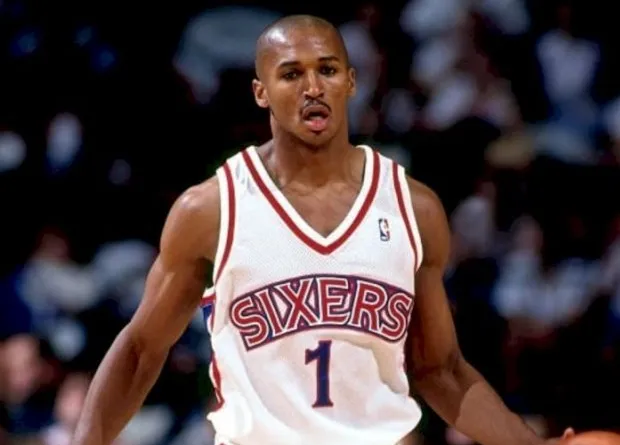The stars who walk the American parquet every night have not always been such, as the NBA's history has shown. Some grew up in cotton wool, protected by their family and aided by a more than comfortable situation (has anyone mentioned the Ball family?), but some had to start very, very low before reaching where the stars of basketball shine.
The NBA doesn't just tell basketball stories; it also tells great social redemption stories that deserve to be told.
10. Allen Iverson
Photo: inquirer
Allen was born to a 15-year-old mother, had no father (who ended up in jail for stabbing an ex-girlfriend), and was forced to live in inhumane conditions in his hometown of Hampton, Virginia.
AI will also end up in prison at the age of 17 (avoiding parole), but he will be able to complete what he dubbed "The Plan": finish high school, go to college, declare himself eligible for the draft, and join the NBA. Only in this manner would he and his family be able to escape all of this. He will be successful, only to fall at the end of his career.
Iverson asked his former Sixers partner Samuel Dalembert for money in 2011, after his $ 150 million career earnings had vanished into debt.
9. Larry Bird
Photo: nydailynews
The greatest motivation for the Celtics legend to make it to the NBA has always been to get out of poverty. He cut the grass, painted benches, and drove the garbage truck for the city of West Baden, Indiana, where he was raised by an almost always unemployed father and a mother who worked in a diner to bring home the meager earnings.
With a rifle shot, the father committed suicide. Larry continued his education at Indiana State University, but he did not return to West Baden, even as the head of the garbage collection service. He was drafted by the Celtics in 1978 (but didn't play until 1979), and he would go on to become more than just a legendđi
8. Baron Davis
Photo: sportscasting
You'd expect noble origins from someone they've always referred to as Il Barone. In reality, Baron Davis's upbringing was far from noble. Born and raised in Compton, he witnessed his parents' drug addiction from an early age: they would enter abandoned buildings and leave after hours. Baron never knew if someone was waiting for him at home after school to get him something to eat or just to hug him.
Baron quickly realized that despite having made a poor decision, he didn't have to be ashamed of his parents. He slept in the dining room because he never had a bed. But he owes everything to his grandparents, who built a basket for him along the street where they lived despite his grandfather's inability to walk. Baron burst into tears because it was so special.
In those 137 steps that separated his house from his grandparents', those 137 steps that he walked every day in training, he found the strength to become great. He'd start over if he missed a single dribble, a single dribble, a single crossover. This is how we mature.
7. Caron Butler
Photo: detroitnews
Dealer at 11, and that's not the worst of it. Caron Butler, who was born and raised in Racine, Wisconsin, made 15 journeys to prison before turning 15 years old. Rarely does anyone have the opportunity to thank the jail, but maybe Caron can.
He discovered a love for basketball while being forced to practice in one of the detention centers where he was imprisoned, which led to him being selected in the 2002 NBA draft, becoming a two-time All-Star, and winning the NBA Championship in 2011 with the Dallas Mavericks.
6. Luol Deng
Photo: nba
Many NBA players' childhoods can appear harsh, especially when it comes to humble beginnings. Luol Deng's story is heartbreaking because he was not born in America. Luol is a true refugee from the second Sudanese civil war, having been born in a war-torn Sudan (now South Sudan).
He met Manute Bol, a former NBA center and member of the Dinca ethnic group (like Luol), the world's tallest human tribe, after fleeing to Egypt. He wears # 9 because he is the youngest of nine brothers and owes a large part of his fortune to his father Aldo's transfer to Egypt and Manute Bol's teachings. He moved to America at the age of 15 and was drafted into the NBA in 2004. He has been a British citizen since 2006.
5. Serge Ibaka
Photo: raptorsrapture
Serge Ibaka is another player who has witnessed the war firsthand. His hometown Brazzaville was razed to the ground when he was seven years old (almost simultaneously with Jordan's 38 points against the Jazz in Game 2 of the Finals). He was the third-last of 18 siblings, born to parents who were both basketball players.
He was nine years old when the Second Congo War broke out, forcing the entire Ibaka family to relocate to Ouesso, in the country's far north, with limited access to water and electricity for more than three years. Basketball helped him overcome the most difficult aspects of his traumatic childhood, including his mother's untimely death and his father's imprisonment.
Then he made the decision to relocate to Ouesso, but he ended up on the wrong side of the conflict and was imprisoned for a time. Son of the Congo is a nearly hour-long documentary produced by Grantland and ESPN Films that tells his story.
4. Samuel Dalembert
Photo: mavsmoneyball
When you are born in one of the world's poorest countries, you know that your childhood will be difficult. Dalembert couldn't afford a pair of shoes in Port-au-Prince, Haiti. Samuel's best friend, who was homeless and hungry, ate the scraps Samuel's grandmother was able to save.
They were forced to sleep on the floor. Dalembert will make his way to the NBA after moving to Canada, where he will play for 14 seasons before moving to China. He was deeply affected by the 2010 Haiti earthquake, which razed his hometown of Port-au-Prince, and he donated $100,000 to help his compatriots in the aftermath of the disaster.
3. DJ Mbenga
Photo: bleacherreport
Serge Ibaka's story is not unique in the Congolese conflict. DJ Mbenga's childhood in Zaire (now the Democratic Republic of Congo) will be remembered for a long time. When the new regime took power, the entire family was imprisoned.
His father, a government employee, was unable to avoid the death penalty, but he was able to secure the safety of DJ and his wife by arranging for their relocation to Belgium, where Mbenga will learn basketball from Belgian legend Willy Steveniers.
He was not chosen in the 2002 NBA Draft, so he had to wait another two years for his big break: a $3.4 million contract with the Dallas Mavericks. The climax will be with the Lakers, where he won two consecutive NBA titles as the third-longest player in the rotation behind Bynum and Gasol. Congo Cash is a nickname given to him by a certain Kobe Bryant. He wore it on the Mamba's drains all the time.
2. Jimmy Butler
Photo: pippenainteasy
Jimmy Butler's father abandoned the family when he was a child. Jimmy was kicked out of the house when he was 13 years old. He managed to keep going from house to house, navigating among his various friends, until he was noticed by Jordan Leslie, a freshman from Tomball High School, who hosted him for a long time.
He did demonstrate to the world his desire for redemption after being chosen on the last call of the first lap.
1. Mirza Teletovic
Photo: netsdaily
Mirza Teletovic, a native of Mostar, Bosnia and Herzegovina, has a lot to tell about his hometown. During the Bosnian conflict in the 1990s, he was seven years old when he was put on fire for 18 months.
Mirza understands that the NBA is the most difficult basketball league on the planet. However, having the chance to have a similar experience after what one has gone through is unrivaled.
